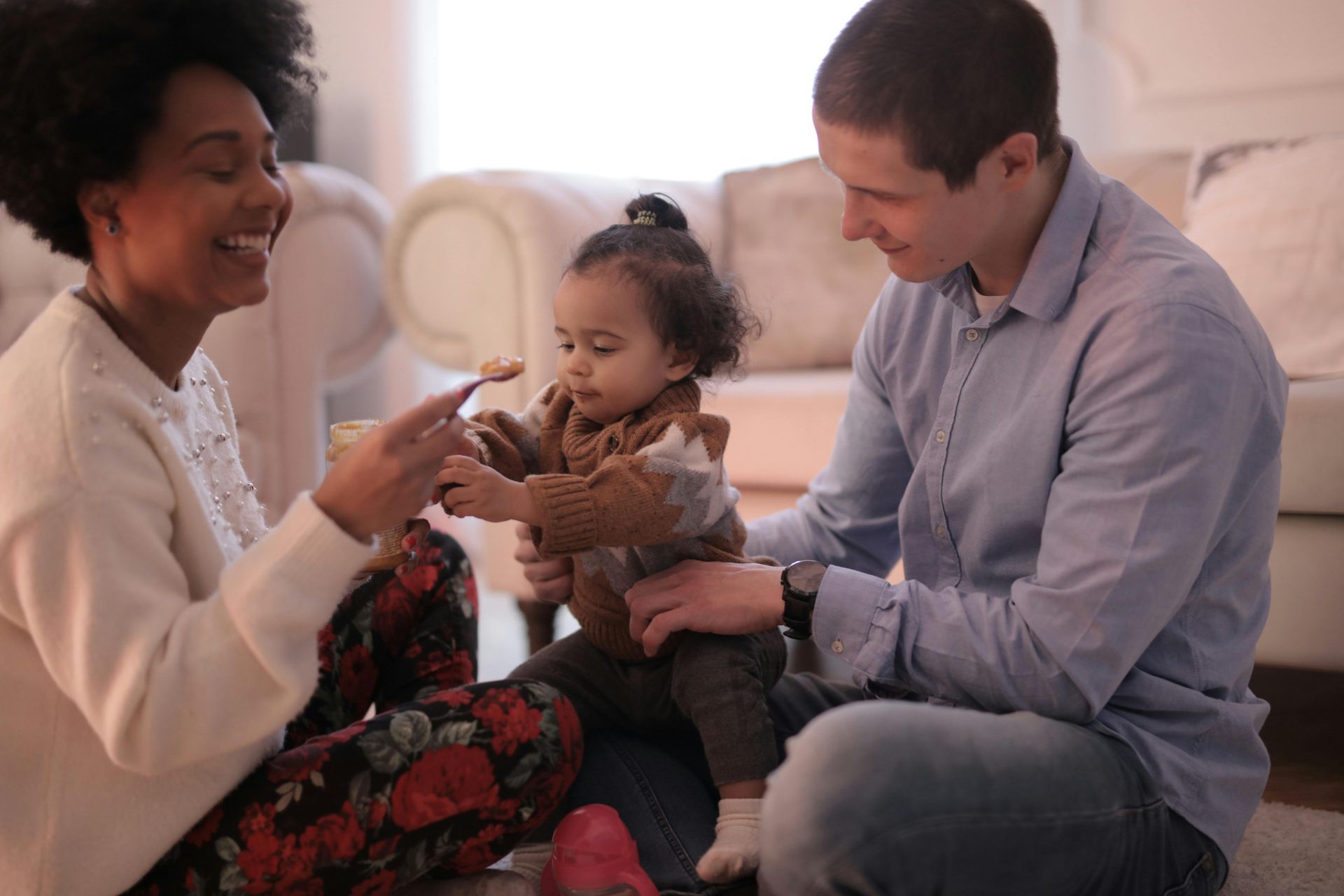If your baby or toddler has eczema, you know the struggle all too well. The dry, itchy, and irritated skin can make everything from playtime to bedtime a challenge. But don’t worry – you’re not alone, and more importantly, eczema is manageable with the right approach.
1. What Is Eczema?
Eczema, or atopic dermatitis, is a common condition in babies and toddlers. It causes dry, itchy, and inflamed patches of skin, often appearing on the face, arms, legs, and behind the knees. Eczema is believed to be a mix of genetic and environmental factors, with triggers like allergens, irritants, and even changes in the weather contributing to flare-ups.
While eczema can feel overwhelming, it’s generally manageable with a solid skincare routine. The goal? Keep your baby’s skin moisturized, avoid irritants, and treat flare-ups when they happen.
2. Building a Skincare Routine That Goes Beyond Gentle and Safe
A consistent and gentle skincare routine that restores the skin's delicate barrier is your best friend when it comes to eczema. Here’s how to set up a routine that keeps your little one’s skin happy and hydrated:
Choose Gentle, Fragrance-Free Products That Pack and Extra Punch
Fragrance-free is the way to go! Fragrances, even natural ones, can be triggers for eczema flare-ups. Look for products specifically formulated for sensitive skin that are free of harsh chemicals, artificial dyes, or synthetic fragrances. But Gentle and fragrance-free products aren't all alike. Ceramides and hyaluronic acid are key ingredients that help restore moisture and protect your baby’s delicate skin barrier. Look for products with these ingredients as you treat your little one.
Moisturize While Skin Is Damp
One of the most effective ways to lock in moisture is by applying a thick, rich moisturizer while your baby’s skin is still damp from a bath. After gently patting their skin with a soft towel, immediately apply the moisturizer. This helps prevent moisture from evaporating and keeps skin hydrated.
For spots that typically have flares, like the face, or areas of flexure, opt for heavier ointmentes that are rich in emollients and humectants. These will form a protective barrier to lock in moisture and calm irritated skin.
Bathing Tips
Bath time should be relaxing – but don’t overdo it. Avoid long, hot baths as they can strip the skin of natural oils, which could trigger a flare-up. Keep the bath short (5-10 minutes) and use lukewarm water. Choose a gentle, fragrance-free baby wash designed for sensitive skin to cleanse without drying out the skin.
After bath time, make sure to moisturize immediately to seal in moisture while your baby’s skin is still damp.
3. When to Use Hydrocortisone 1% for Minor Flare-Ups
For those occasional eczema flare-ups, ointments like CeraVe Healing Ointment* are a great option. If things don't improve with ointments alone, though, hydrocortisone 1% cream can be your go-to. It helps reduce inflammation and itching. Here’s how to use it:
- Apply sparingly: Only use a thin layer on the areas of skin that are affected.
- Use for short periods: Limit its use to 1-2 weeks to avoid thinning the skin.
- When to use: If your baby’s eczema is red, inflamed, or unbearably itchy, hydrocortisone can help calm it down. If things don’t improve after 4-5 days, or seem to get worse, reach out to your pediatrician for further treatment.
4. Avoiding Common Triggers
Managing eczema is all about avoiding things that could make flare-ups worse. Here are some common triggers to watch out for:
- Harsh chemicals and detergents: Always choose a gentle, fragrance-free detergent for your baby’s clothes and bedding.
- Overheating: Dress your baby in lightweight, breathable clothing to prevent overheating, which can irritate the skin.
- Allergens: Dust mites, pet dander, and pollen can make eczema worse. Regularly clean and vacuum your home to reduce allergens in your baby’s environment.
5. When to Seek Medical Advice
While many eczema flare-ups can be handled at home, there are times when you should consult a doctor. If your baby’s eczema:
- Doesn’t improve despite consistent care
- Becomes infected (signs include redness, swelling, or pus), OR
- Spreads rapidly or worsens over time
it’s time to reach out to your pediatrician or dermatologist. They may recommend stronger treatments or even prescription medications.
6. Why a Good Skincare Routine Matters
Preventing flare-ups is the name of the game. By sticking to a gentle skincare routine, using fragrance-free products, and moisturizing regularly, you can help keep your baby’s skin healthy and comfortable. The right approach can make a world of difference in preventing dryness and irritation.
Final Thoughts
Dealing with eczema can be tough, but with the right tools, you can help your little one feel comfortable again. Choosing gentle, fragrance-free skincare products and focusing on hydration is key. With a little extra care, your baby’s skin can stay soft, healthy, and eczema-free. By following these simple steps, you can manage your baby’s eczema more effectively and help keep their skin soft, smooth, and irritation-free. It’s all about finding what works for your little one—and knowing when to ask for help.
**Disclaimer: I act as a paid pediatric medical advisor and Spokesperson for CeraVe.












